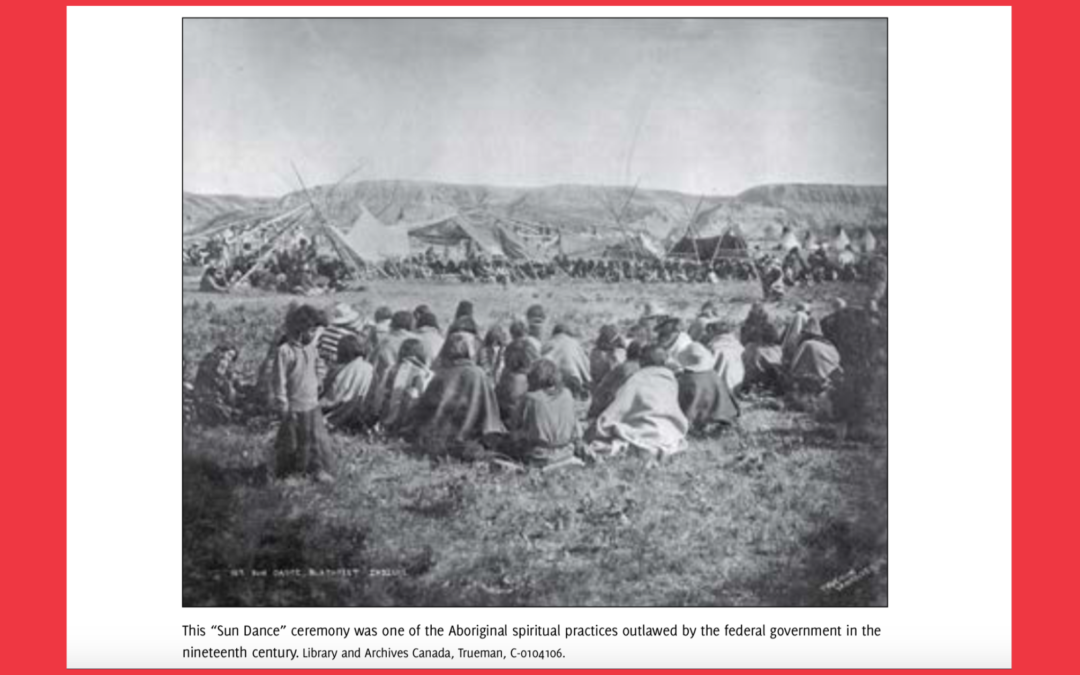What Have We Learned? A Canada Day Reflection
By Tim Huff
This year, as I take in Canada Day, I think back to 2015 when I attended the Truth and Reconciliation gatherings in Ottawa. After listening to many profound testimonials from Indigenous Canadians, I was given a vital book titled “What We Have Learned: Principles of Truth and Reconciliation.”
Since then, I have read that report over and over again. I have spent time reflecting on how the Canadian history I learned in school was so devoid both of the truth in this report and of the voices I heard that day in Ottawa. As a child, I was taught stories about European “explorers” and “settlers.” The “Indians” were presented not as vibrant human beings living in dynamic and diverse communities but as an ambient part of the story, like the terrain or the weather.
As you take in this Canada Day, in whatever fashion that may be, would you take a few moments to read the Report’s opening overview, which I’ve included below? And as you’re able, may I encourage you to also read the full report?
My sincere hope and prayer, and that of the Compassion Series team, is that this would stir something significant in your soul and cause you to find out more about your history and your Canada.
Humbly,
Tim
Principles of Reconciliation:
The Truth and Reconciliation Commission of Canada believes that in order for Canada to flourish in the twenty-first century, reconciliation between Aboriginal and non-Aboriginal Canada must be based on the following principles.
- The United Nations Declaration on the Rights of Indigenous peoples is the framework for reconciliation at all levels and across all sectors of Canadian societies.
- First Nations, Inuit and Metis peoples , as the original peoples of this country and as self-determining peoples, have Treaty, constitutional, and human rights that must be recognized and respected.
- Reconciliation is a process of healing and relationships that requires public truth sharing, apology, and commemoration that acknowledge and redress past harms.
- Reconciliation requires constructive action on addressing the ongoing legacies of colonialism that have had destructive impacts on Aboriginal peoples’ education, cultures and languages, health, child welfare, the administration of justice, and economic opportunities and prosperity.
- Reconciliation must create a more equitable and inclusive society by closing the gaps in social, health, and economic outcomes that exist between Aboriginal and non-Aboriginal Canadians.
- All Canadians, as Treaty peoples, share responsibility for establishing and maintaining mutually respectful relationships.
- The perspectives and understandings of Aboriginal Elders and Traditional Knowledge Keepers of the ethics, concepts, and practices of reconciliation are vital to long-term reconciliation.
- Supporting Aboriginal peoples’ cultural revitalization and integrating Indigenous knowledge systems, oral histories, laws, protocols, and connections to the land into the reconciliation process are essential.
- Reconciliation requires political will, joint leadership, trust building, accountability, and transparency, as well as a substantial investment of resources.
- Reconciliation requires sustained public education and dialogue, including youth engagement, about the history and legacy of residential schools, Treaties, and Aboriginal rights, as well as the historical and contemporary contributions of Aboriginal peoples to Canadian society.
– “What we have learned: Principles of truth and reconciliation,” p. 3-4
More Resources:
Truth and Reconciliation Commission of Canada
